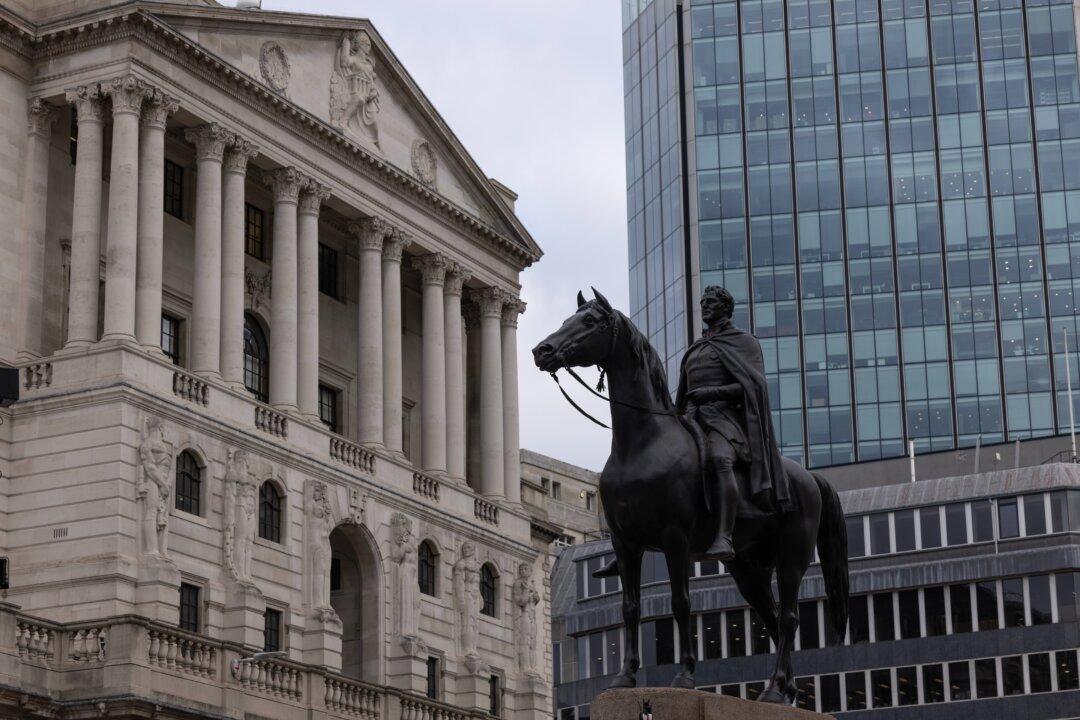The Bank of England (BoE) should stop selling bonds unless the sales will have an important influence on inflation, a report said.
The report, published by free-market think tank the Institute of Economic Affairs (IEA), blamed the central bank’s “bad errors” for runaway inflation, and questioned the rationale of selling bonds at a loss.





